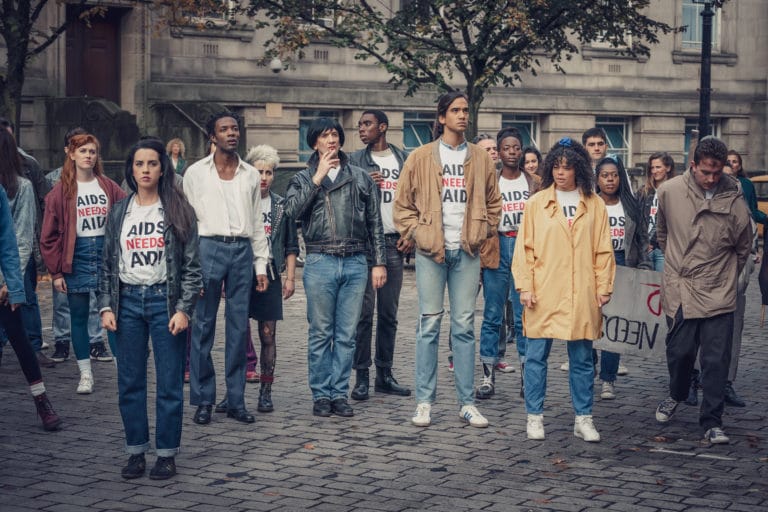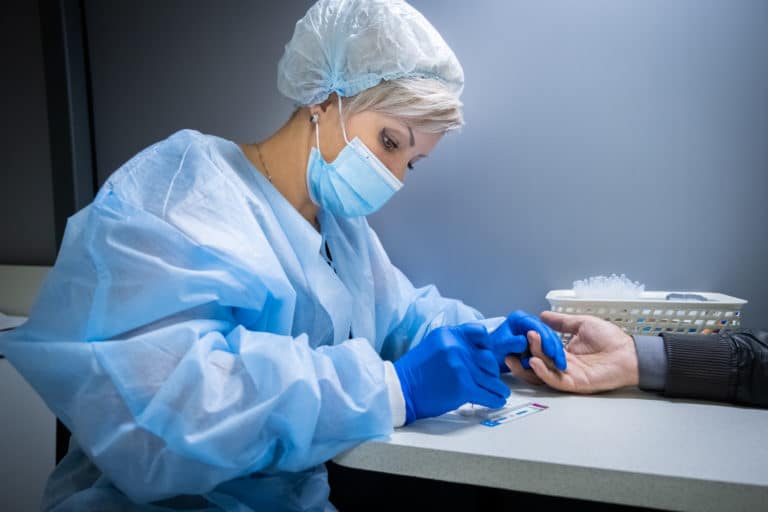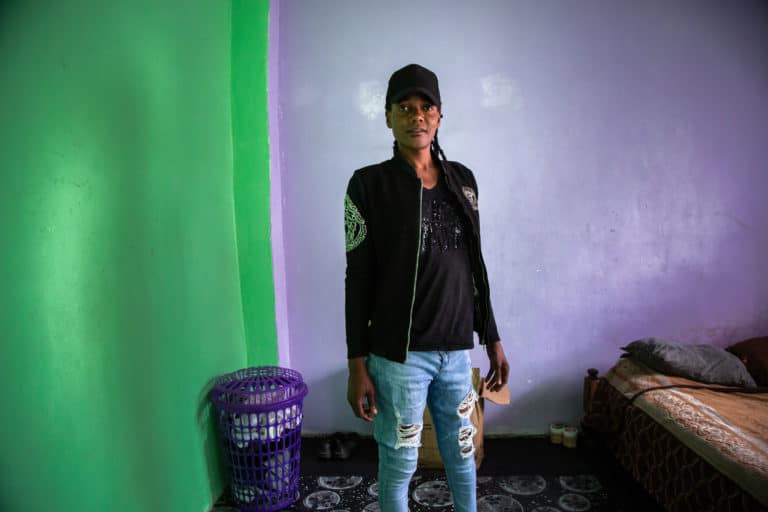Written by Fredrick Anyanwu, Chief Philanthropy Officer at the Elton John AIDS Foundation
February marks Black History Month and it is a time for us to celebrate and remember the people and events that have got us to where we are today. It encourages many to learn about the history they were never taught, how the world has changed, and what still needs to be done to create a world free from racism, stigma, and discrimination.
In 2020, the Black Lives Matter movement and the COVID-19 outbreak shook the world, giving more, much needed attention to the inequalities that Black people face. However, we must remember that this is nothing new. The fight for racial equality has been going on for centuries.
We must confront these inequalities and act in a way that will bring meaningful change.
I grew up in Nigeria, where there are approximately 1.8 million people currently living with HIV. There is a huge amount of stigma towards people living with HIV/AIDS and growing up, I was always very aware of the devastating impact it brought to so many people. In the United States, Black/African Americans make up just 13 percent of the population, yet they represented 42 percent of new HIV diagnoses in 2018. These figures are unacceptable and is what drives me to do what I do at the Elton John AIDS Foundation.
These high HIV/AIDS rates amongst Black communities can be attributed to a variety of social and economic factors, including poverty, education, and homelessness but stigmatising HIV/AIDS only deters people from getting tested, disclosing their status, and pursuing appropriate treatment and care.
Prioritising the people most vulnerable
The racial disparities in the AIDS epidemic are a global issue and therefore require a global effort to be addressed. This idea of global partnership and ensuring that no one is left behind is at the very heart of the Elton John AIDS Foundation’s mission. We form global partnerships to raise awareness and educate society on the issue. We fund community organisations on the ground who are doing incredible work to provide life-saving HIV testing, treatment, and care. And we work in some of the most challenging countries and contexts where other donors are not present.
We support innovative programs all over the world to provide effective, stigma-free care and advocate for equal rights to health services but if we want to end the AIDS epidemic, it’s important that we react to the high rate of HIV transmission amongst Black/African American communities in the United States and young people across sub-Saharan Africa.
Take some time to learn about the Foundation’s impact by exploring our interactive globe. Here you will discover more about the incredible programmes we’ve helped fund over the years, our current partners, and those we were able to support by pivoting our response during the COVID-19 pandemic.
What we can all do to create a more equitable future
At the Elton John AIDS Foundation, we are committed to prioritising these issues in everything we do so that we can end the AIDS epidemic for everyone. Here are just a few things we can all be doing to create a more equitable future.
- HIV can affect anyone regardless of race, sexual orientation, ethnicity, gender, age, or where you live. By simply having the conversation, we can begin to destigmatise the topic within communities so that more people feel safe to seek out care.
- HIV is no longer a death sentence. If we can continue to raise awareness of the benefits of HIV testing and knowing your status, we can save more lives and stop the virus in its tracks.
- Make sure equality and compassion is at the heart of everything you do.
- Create trusting environments in your community that encourage openness and offer support.
- Continue to educate yourself and others so that we can address fear, stop misinformation, and change attitudes.
Stories
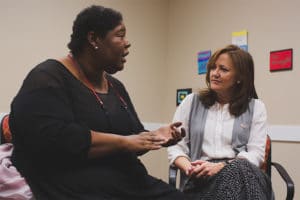
We met Faith on a visit to Positive Impact Health Center, Atlanta, in 2019 and were captivated by her story and her strength to overcome abuse throughout her life. Since finding out she is HIV positive, Faith’s family have been her support system and she comes to Positive Impact for counselling sessions and mental health support.
Mental health is often stigmatised and neglected or unaddressed for vulnerable people all over the world and it’s integral to our role as a Foundation to work with and on behalf of communities to combat this issue.
Image: Robyn Penn
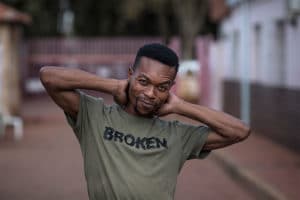
South Africa is home to over 7 million people living with HIV, making it one of the countries most affected by HIV in the world. TK is one of the 100 PrEP trial patients at Yeoville Clinic in Johannesburg where he also works as an Outreach Community worker. He spends his days out in the city centre and rural communities testing for HIV and referring people for treatment.
Having workers like TK, patients at the clinic find great comfort knowing that their experience is understood and confidential.
Image: Siegfried Modola

